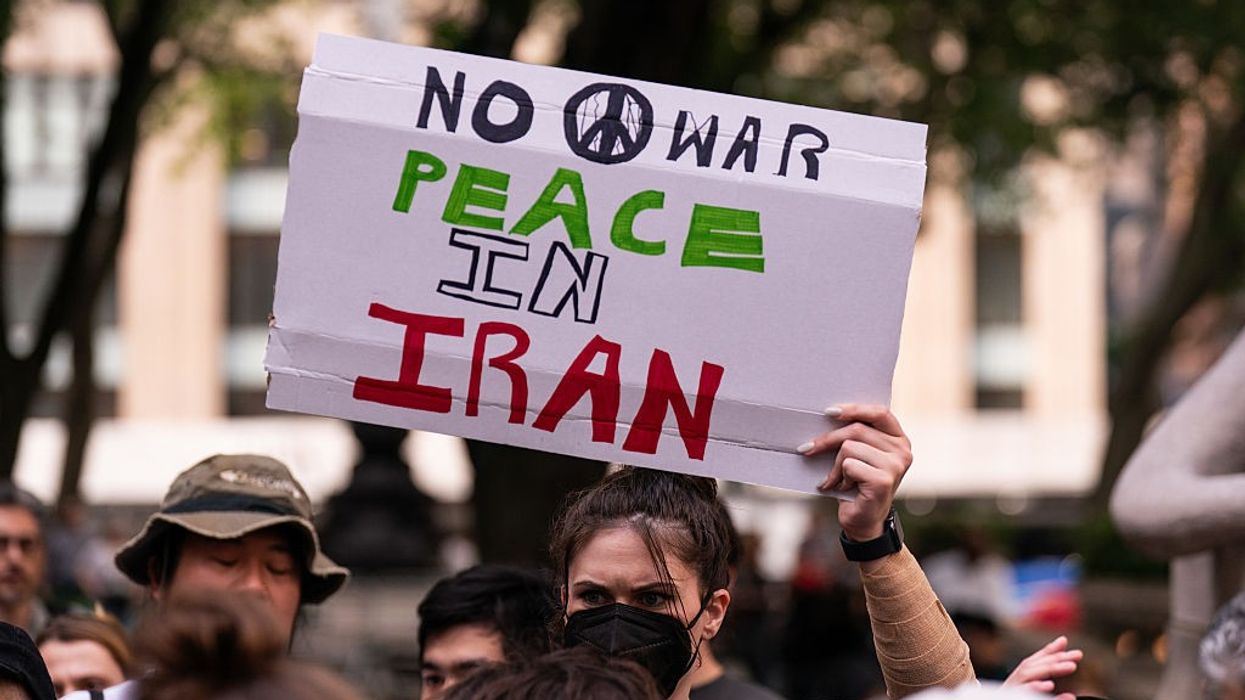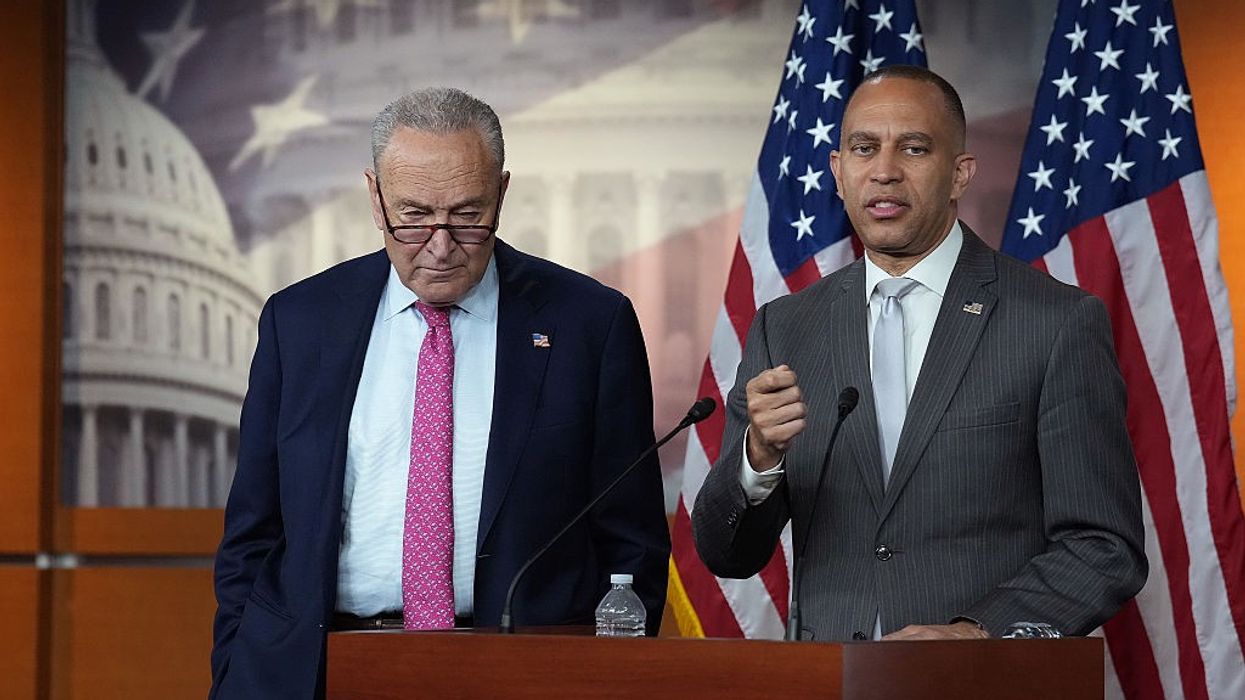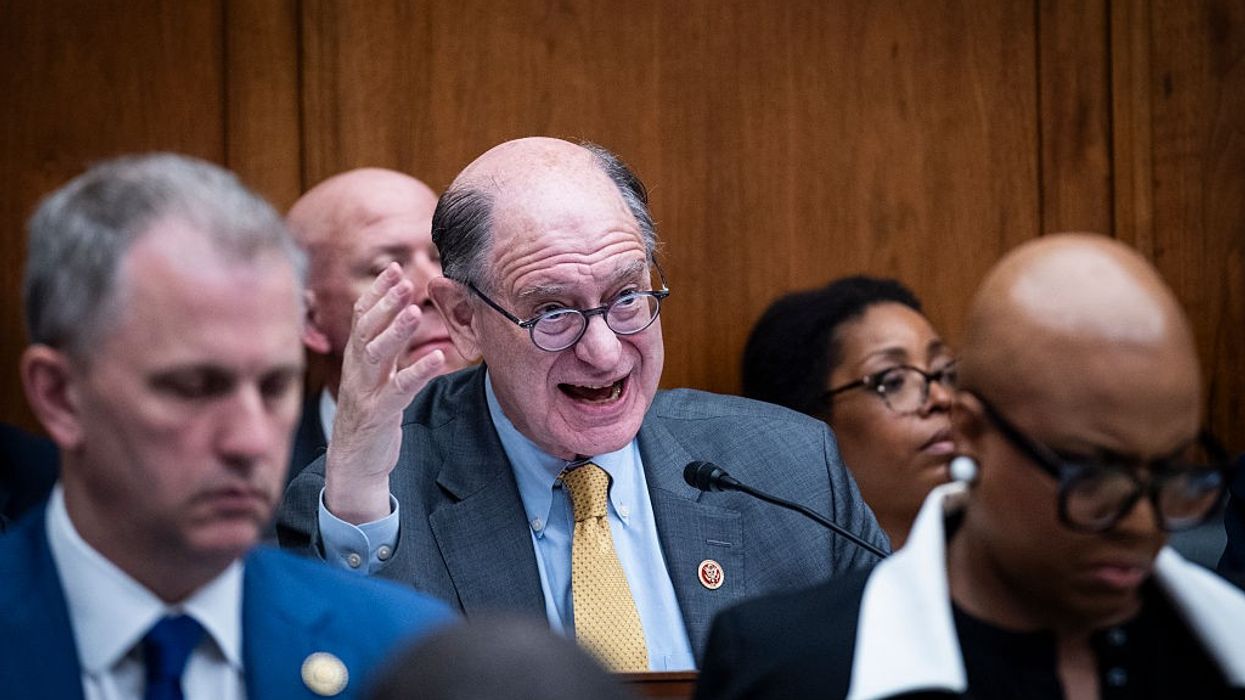Senate GOP and Fetterman Block Effort to Stop Trump's War on Iran
"The current cease-fire is fragile—and the only path to lasting peace is diplomacy, not another cycle of American military escalation," one campaigner stressed after lawmakers refused to advance the resolution.
Nearly all U.S. Senate Republicans and Democratic Sen. John Fetterman of Pennsylvania on Friday evening blocked a resolution that reiterated Congress' authority to declare war and would have ordered President Donald Trump to stop taking military action against Iran without congressional approval.
Every other member of the Democratic Caucus and Sen. Rand Paul (R-Ky.) supported holding a final vote on the resolution—which Sen. Tim Kaine (D-Va.), a member of the Senate Armed Services and Foreign Relations committees, announced last week, before Trump's weekend bombing of Iranian nuclear facilities.
"We commend Sen. Kaine for his steadfast leadership in bringing this resolution, and the U.S. senators who stood on the right side of history today in safeguarding against yet another senseless war."
Citing the U.S. Constitution and the War Powers Resolution of 1973, Kaine's measure states that "the question of whether United States forces should be engaged in hostilities against Iran should be answered following a full briefing to Congress and the American public of the issues at stake, a public debate in Congress, and a congressional vote."
Pointing to various other federal laws, Kaine's resolution "directs the president to terminate the use of United States Armed Forces for hostilities against the Islamic Republic of Iran or any part of its government or military, unless explicitly authorized by a declaration of war or specific authorization for use of military force against Iran."
In a statement after Friday's 47-53 vote, Kaine said that "the Framers of our Constitution gave Congress the power to declare war because they believed that the decision to send our nation's men and women in uniform into harm's way was too big for any one person. The Trump administration's chaotic strategy on Iran confused the American people and created significant risks for service members and their families."
"I am disappointed that many of my colleagues are not willing to stand up and say Congress needs to be part of a decision as important as whether or not the U.S. should send our nation's sons and daughters to fight against Iran," Kaine added. "I will continue to do all I can to keep presidents of any party from starting wars without robust public debate by Congress."
Sen. Bernie Sanders (I-Vt.), who caucuses with Democrats, was among the lawmakers who spoke in support of Kaine's resolution ahead of the vote. "We do not need another unnecessary and costly war. We have had enough of them," he said on the Senate floor, pointing out that the Vietnam War and the U.S. invasion of Iraq were "based on a series of lies."
"We should not go to war against Iran," Sanders declared. He condemned Trump's recent attack on the Middle Eastern country as "unconstitutional," and argued that "diplomacy is a better path," as demonstrated by the nuclear deal in 2015—which Trump ultimately ditched during his first term.
Sanders also made the case that the U.S. should not be allied with "war criminal" Israeli Prime Minister Benjamin Netanyahu, who started the bombing of Iran and is wanted by the International Criminal Court for his mass slaughter of Palestinians in the Gaza Strip.
"Enough is enough," the senator said, noting that the U.S. gives Netanyahu's government billions of dollars in annual military aid. "It is beyond absurd that we continue to finance Israel's wars while neglecting the needs of our own people."
Meanwhile, in response to a question from a BBC reporter on Friday, Trump said that he would "without question, absolutely" consider bombing Iran again if intelligence suggested the country could enrich uranium to a level that concerned him.
After the Senate vote, National Iranian American Council president Jamal Abdi said that the outcome "says more about the makeup of the Senate than it does the merits of the resolution. Regardless, we saw a near majority do the right thing and stand up against war and for democracy, despite a cavalcade of misinformation from war hawks. We will continue to press the case that war with Iran is against U.S. interests and U.S. security, and redouble our work to prevent the conflict from reigniting."
"We commend Sen. Kaine for his steadfast leadership in bringing this resolution, and the U.S. senators who stood on the right side of history today in safeguarding against yet another senseless war," he continued, noting the cease-fire between Israel and Iran that Trump announced earlier this week.
"Though a cease-fire is holding for now, the most certain way to guarantee peace is through an abandonment of war and a bold pursuit of sincere negotiations," Abdi added. "We urge our Members of Congress to change course, and urgently support a return to U.S.—Iran talks and a diplomatic pathway forward for both countries."
We took an oath to defend the Constitution - just like every Senator. Today, Republicans broke that oath. We WILL hold them accountable. (2/2)
— VoteVets (@votevets.org) June 27, 2025 at 7:09 PM
Also responding to the Friday development in a statement, Demand Progress senior policy adviser Cavan Kharrazian asserted that "today's vote sends a powerful message: There is a bipartisan movement to reject more war in the Middle East and prevent us from being unilaterally dragged into war before Congress and the American people can have their say."
"We thank Sen. Kaine for his leadership and Sen. Paul for his principled vote to stand up for the Constitution," Kharrazian said, urging the House of Representatives to pass a similar resolution led by Reps. Thomas Massie (R-Ky.) and Ro Khanna (D-Calif.).
Ahead of the Senate's vote, more than 41,000 people nationwide had signed a petition from the progressive group MoveOn Civic Action that calls on Congress to vote for the resolutions in both chambers.
"The current cease-fire is fragile—and the only path to lasting peace is diplomacy, not another cycle of American military escalation," Kharrazian emphasized. "The U.S. must lead with restraint, not repeat the mistakes of endless war."


